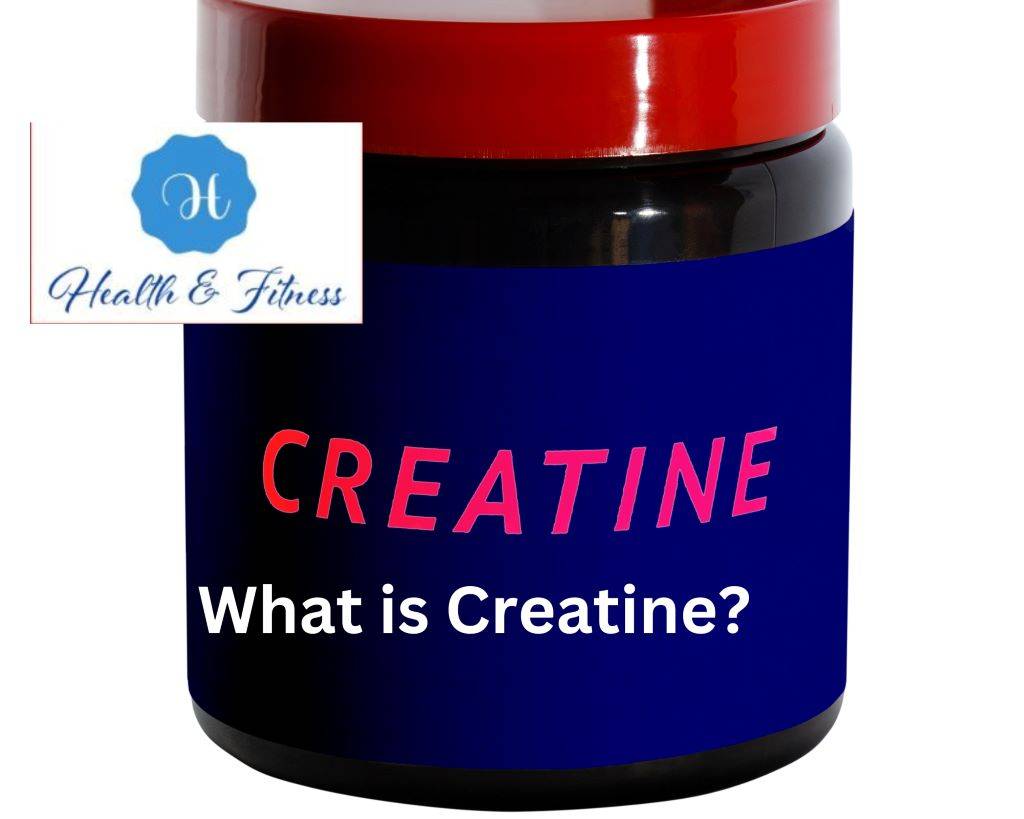Does Creatine Make You Gain Weight? Uncovering the Facts.
Get the facts: Does Creatine Make You Gain Weight? Uncover the truth about creatine’s impact on your physique and performance.
Introduction to Does Creatine Make You Gain Weight
The purpose of this blog post is to explore the question, “Does creatine make you gain weight?” We’ll discuss creatine science, weight gain, and individual reactions to supplementation. We’ll also explore creatine’s pros and cons and how to avoid weight gain. By the conclusion of this piece, readers should understand how Creatine affects weight gain and be able to make informed supplementation and fitness decisions.
Creatine is a controversial fitness and nutrition supplement. Is Creatine weight-gaining? This blog article discusses creatine, weight, and fitness objectives.
Creatine supplementation has grown popular, raising concerns about weight gain. Creatine supplement users must understand how Creatine affects weight growth. This knowledge may assist consumers in choosing supplements and weight control measures.
What is Creatine?

Creatine is an organic compound of three amino acids: arginine, glycine, and methionine. It is primarily synthesized in the liver, kidneys, and pancreas and then transported to the muscles, where it is stored as creatine phosphate. The primary function of creatine is to provide energy to the muscles during high-intensity activities and short-duration exercises, such as weightlifting, sprinting, and jumping.
1-Role of creatine in energy production
Does Creatine Make You Gain Weight?
During exercise, our muscles require constant energy to perform at their best. This energy is derived from a molecule called adenosine triphosphate (ATP). However, the body’s natural ATP stores are limited and can be depleted quickly during intense physical activity. This is where creatine comes into play.
Creatine phosphate donates a phosphate group to adenosine diphosphate (ADP), converting it into ATP. This process replenishes the body’s ATP stores, allowing muscles to continue contracting and generating force. Creatine serves as a rapid energy source for the muscles, helping to delay fatigue and enhance overall performance.
2- Natural sources of creatine and supplementation
Meat, poultry, and fish contain creatine. These foods contain modest quantities; therefore, reaching supplemental levels would take a lot. Creatine monohydrate supplements, which are commercially accessible, have been inspected for safety and efficacy.
Creatine supplements boost muscular creatine reserves, improving performance in high-intensity exercises. Creatine’s performance-enhancing and muscle-building effects depend on genetics, nutrition, and exercise.
Does Creatine Make You Gain Weight?

Red meat, seafood, and the liver, kidneys, and pancreas create modest quantities of creatine. Creatine generates ATP, which powers all your body’s operations.
Oral Creatine binds to phosphate to generate phosphocreatine.
The body generates ATP from phosphocreatine stores. Workouts burn eight to ten seconds of ATP.
Low creatine levels reduce ATP production, causing energy depletion and training difficulties.
Creatine gives your body the extra ATP it needs to be strong and energized.
How Creatine Affects Weight Gain
A. Increase in water weight
- Mechanism of water retention
One of the primary ways creatine affects weight gain is through an increase in water weight. When Creatine is stored in the muscles as creatine phosphate, it also attracts water molecules. This process, known as osmosis, increases the water content within the muscle cells. As a result, the muscles may appear fuller and more voluminous.
- Short-term weight gain
The increase in water weight is typically a short-term effect of creatine supplementation. Users may notice a slight weight gain within the first few days or weeks of starting creatine supplementation, which can range from 1 to 5 pounds, depending on the individual. It is important to note that this weight gain is primarily because of water retention, not increased body fat.
B. Increase in muscle mass
- Creatine’s Role in muscle protein synthesis
Besides its role in energy production, creatine has also been shown to promote muscle protein synthesis, which is the process by which the body builds new muscle tissue. Creatine supplementation may enhance the body’s ability to recover from exercise, increasing muscle growth.
- Long-term weight gain
Because of increased muscle protein synthesis, creatine users may experience long-term weight gain as increased muscle mass. This type of weight gain is considered beneficial, as it contributes to improved strength, performance, and overall body composition. However, it is essential to combine creatine supplementation with a well-rounded exercise program and a balanced diet to achieve optimal results.
Factors influencing individual response to creatine
- Genetics
Genetic factors can play a role in determining an individual’s response to creatine supplementation. Some people may naturally have higher levels of creatine in their muscles, which could result in a diminished response to supplementation.
- Diet and exercise habits
The effectiveness of creatine supplementation can also be influenced by an individual’s diet and exercise habits. Consuming a diet rich in protein and carbohydrates and engaging in regular resistance training can help maximize the benefits of creatine supplementation.
- Duration and dosage of supplementation
Weight gain depends on creatine supplementation duration and dose. Most creatine supplementation programs include loading and maintenance phases. Users take extra creatine for 5-7 days during loading, which might accelerate water weight gain. A lower daily dosage maintains muscle creatine levels without water retention in the maintenance phase. To get benefits and reduce adverse effects, follow dose instructions.
Benefits of Creatine Supplementation
- Enhanced athletic performance
Creatine supplementation has been shown to improve athletic performance, particularly in high-intensity, short-duration activities such as weightlifting, sprinting, and jumping. By increasing the availability of ATP in the muscles, creatine allows athletes to perform at a higher intensity for more extended periods, improving overall performance.
- Improved muscle strength and endurance
Besides enhancing athletic performance, creatine supplementation has also been linked to increased muscle strength and endurance. Creatine can help users achieve greater strength and muscle mass gains over time by promoting muscle protein synthesis and providing a rapid energy source. This can be particularly beneficial for individuals looking to improve their physical fitness or for athletes seeking a competitive edge.
- Potential cognitive benefits
Emerging research suggests that creatine supplementation may also have cognitive benefits. Some studies have found that creatine can improve short-term memory, cognitive processing speed, and overall brain function, particularly in tasks that require quick thinking and problem-solving. While more research is needed to understand the extent of these cognitive benefits fully, creatine supplementation may hold promise for individuals looking to enhance their mental performance.
Potential Drawbacks of Creatine Supplementation
- Dehydration and electrolyte imbalances
One potential drawback of creatine supplementation is the risk of dehydration and electrolyte imbalances due to increased muscle water retention. To minimize this risk, it is essential to maintain adequate hydration and consume a balanced diet rich in electrolytes while using creatine supplements.
- Gastrointestinal issues
Because of creatine supplementation, some individuals may experience gastrointestinal issues, such as bloating, cramping, or diarrhea. These side effects can often be mitigated by adjusting the dosage, using a micronized creatine product, or consuming creatine with a meal.
1. Kidney and liver concerns
Although safe for healthy people, creatine supplementation may affect kidney and liver function. Long-term creatine use may harm the kidneys or liver, especially in pre-existing disorders. Before using creatine, visit a doctor, particularly if you have renal or liver problems. Creatine supplement users should additionally check renal and liver function.
Proper dosing and monitoring may minimize mild creatine supplements’ adverse effects. Most healthy adults should take creatine. See a doctor if you have pre-existing conditions or use medicines before beginning a supplement program. Creatine may be safely and effectively used in training regimens to attain objectives.
Tips for Managing Creatine-Related Weight Gain
Does Creatine Make You Gain Weight?
- Monitoring water intake
As discussed earlier, one of the potential side effects of creatine supplementation is an increase in water weight because of water retention in the muscles. Monitoring water intake and ensuring adequate hydration is essential to managing this weight gain. Drinking plenty of water can help flush out excess water weight and prevent dehydration, which can exacerbate the risk of electrolyte imbalances.
- Adjusting exercise routine
Another way to manage creatine-related weight gain is to adjust your exercise routine. While Creatine can enhance athletic performance and promote muscle growth, it is essential to balance this with cardiovascular exercise and other forms of physical activity. Incorporating activities such as running, cycling, or swimming can help burn excess calories and prevent excessive weight gain.
- Proper supplementation
Finally, using creatine pills correctly helps regulate weight gain. Dosing properly and cycling creatine can reduce water retention and adverse effects. High-quality, micronized creatine products increase absorption and decrease gastrointestinal concerns.
Finally, while creatine supplementation might cause weight gain, it improves athletic performance and muscular strength. Manage creatine-related weight gain and reach fitness objectives by monitoring water consumption, changing exercise regimens, and utilizing creatine supplements effectively. If you have pre-existing medical issues or take medicines, see a healthcare provider before starting any new supplement program.
Conclusion about Does Creatine Make You Gain Weight
This blog researched creatine supplementation and weight gain. (Does Creatine Make You Gain Weight) Creatine does not cause fat buildup? Water retention promotes early weight gain, while high-intensity exercise improves muscle growth.
Creatine for fitness optimization
Creatine helps achieve fitness goals. Athletes, bodybuilders, and others benefit from creatine. To increase strength, power, and muscle, use a high-quality creatine monohydrate supplement, follow the loading and maintenance phases, and mix it with a balanced diet and fitness program.
Dispel creatine and weight growth misconceptions. Knowing creatine chemistry and its effects can help you supplement and attain your fitness goals.



